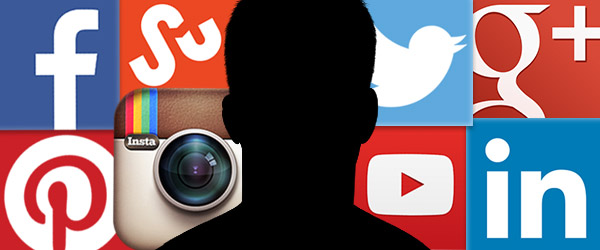
ocial media platforms like Facebook, Twitter, YouTube and others may pose a threat to American democracy, suggests a new report from The Omidyar Group.
The report follows recent disclosures about targeted dark post advertising, fake news and other abuses propagated by Russian troll farms during the 2016 presidential election.
Among the questions the report raises is whether the U.S. government may need to take steps to protect the public from future influence campaigns that could undermine the very foundation of a free society, wrote billionaire eBay founder Pierre Omidyar in a Washington Post op-ed published earlier this week.
"For all the ways this technology brings us together, the monetization and manipulation of information is swiftly tearing us apart," he wrote. "From foreign interference in our elections to targeted campaigns designed to confuse and divide on important issues, groups looking for an important way to infiltrate and influence our democracy have found generous hosts in the world of social media."
Bias, Manipulation, Intolerance
There are six major ways social media directly threatens democratic ideals, according to the report:
- Facilitating echo chambers and hyperpartisanship;
- Spreading false or misleading information;
- Conflating popularity with legitimacy;
- Providing tools for political manipulation;
- Allowing microtargeting to influence behavior change; and
- Amplifying hate speech, intolerance and exclusion.
Facebook plans to release information regarding the extent of Russian efforts to target U.S. voters, COO Sheryl Sandberg told Axios in an extensive interview, but she hedged when asked specifically whether the company was aware of collusion between Russia and the Trump presidential campaign.
Facebook previously handed over direct evidence to congressional investigators, Sandberg said, and it has hired 4,000 additional people, employed machine learning, and taken several other major steps to better police its internal systems.
I See You
There needs to be greater transparency about election-related ads on social media sites," said Darrell West, director of the Center of Tech Innovation atBrookings. "Right now, it is impossible to see who is behind large advertising campaigns, and that is corrosive of American elections."
Voters need to know what is happening in order to judge a political campaign, West told TechNewsWorld.
It's difficult to know the exact impact of these campaigns on voter behavior, but large online campaigns can be important, he added.
People rely on social media platforms to communicate with each other, conduct business and form opinions, said Dan Nadir, vice president of digital risk atProofpoint, but the Internet wasn't designed with trust in mind.
"Often our confidence in an email, a website, a social account, or even a mobile app has no technical basis," he told TechNewsWorld, "and we need to recognize how easy it is to abuse it."
Omidyar does a good job laying out some of the election-related problems with social media, but the solutions offered, while well intended, miss the mark by a bit, observed Charles King, principal analyst at Pund-IT.
"Though he's spot on in criticizing how online media can be used to promote bogus information and spread partisan messages, simply regulating social media sites isn't likely to succeed," King told TechNewsWorld.
The Omidyar proposal would require the federal government to go on a "new and highly radical round of business and financial regulations," King said. "In addition, such a change would likely eliminate or drastically reduce anonymity of online social media users."
It would be ideal if social media firms like Facebook, Google and others voluntarily adopted some of Omidyar's suggestions, he suggested, but doing so would hurt their revenues significantly.
Unless a larger number of voices call for major reform, wholesale changes are unlikely to happen, King said.
Despite legitimate concerns about the role of social media in the 2016 election, a lot of what took place was new for everyone, and social media executives should not be treated as though they were capable of seeing the future, said Chris Calabrese, vice president of policy at the Center for Democracy & Technology.
"I don't think we want to pick on a particular tool and say this is the problem," he told TechNewsWorld. "Nor do I want to say the solution is some kind of government censorship. That's not something we want to endorse."
It's not surprising that Russia or any other outside entity would try to influence U.S. elections, said Richard Forno, assistant director of the UMBC Center for Cybersecurity.
However, "I think the broader danger is that social media was part of a concerted effort to undermine not just the outcome of the election, but to sow distrust in the electoral system," he told TechNewsWorld, "and the very sources of information that a citizenry needs to make informed decisions about their political status and/or future."
David Jones is a freelance writer based in Essex County, New Jersey. He has written for Reuters, Bloomberg, Crain's New York Business and The New York Times.
Report Probes Social Media's Threat to Democracy
![Report Probes Social Media's Threat to Democracy]() Reviewed by Rizwan
on
12:46 AM
Rating:
Reviewed by Rizwan
on
12:46 AM
Rating:



No comments: